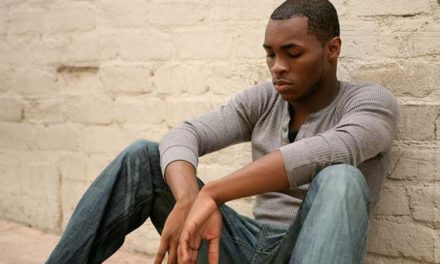Why do so many people move out of the city when they have kids? There’s a popular notion that nothing is better for them than having open spaces to run around in, and that suburbs are safer than urban spaces (which is not always true) – but the city can also be a great place to grow up. This is never more so than when it’s a multicultural city with a thriving cosmopolitan culture, full of opportunities for them to discover new things. Raising your kids in an environment like this is perfect if you want to encourage curiosity, adaptability and a sense of adventure.
Difference is a positive thing
Growing up surrounded by people from lots of different cultures, all living together and sharing schools and workplaces, helps to make kids feel more positive about difference in general. This extends beyond race, ethnicity and religion to a disability, LGBTQ experience and more. They’re much less likely to develop prejudices or feel uncomfortable around people they can’t immediately relate to. It helps kids who feel different themselves to realize that that’s okay. Being around different traditions means that it’s easier to find varied examples of how to deal with life’s challenges – everything from bereavement to parents splitting up – so kids know that however they may feel, they’re not alone.
It’s easier to understand history
Learning history – in school, in your community, or even from the TV – works much better if you can understand the larger context. When children have friends from other countries, or with families from other countries, they can get a much clearer picture of America’s position in the world and how historical events relate to each other. If they have Native or African American friends in class, they’ll also get a more complex picture of US history. They’ll learn about different ways of recording history, such as oral traditions and song, from the people around them.
It’s easier to understand society
When you look at the world from a single perspective, there are all sorts of things about it that don’t seem to make much sense. Academic Bree Picower has found that studying in a diverse environment gives children a much richer and more nuanced understanding of social issues. White children often struggle to understand the systemic nature of racism, but if they have friends whose lives are directly affected by it, it makes much more sense to them. Children from different religious backgrounds, including different Christian denominations, understand and respect each other’s traditions when they grow up together.
Learning languages is fun
Sharing study, work and social spaces with people from different backgrounds often means being exposed to different languages. This helps children to identify relationships between words and often improves the skill with which they speak their own languages. It gives them an enthusiasm for communication that makes learning new languages much easier and, depending on the languages they choose, they often have the opportunity to practice with native speakers. Kids have a lot more confidence about their ability to learn languages when they’re in class every day alongside recent immigrants who are rapidly developing fluency in English.
There’s lots to see and hear and taste
When you live in a place where lots of cultural groups intersect, you never have to wait long for a party, food festival or other types of celebration, which children love. They get to experience other cultures with all of their senses in day-to-day life, seeing varied styles of clothing, hearing varied speech and music, trying different foods and drinks. This immediate sensory connection is something that brightens up their lives in the immediate term and also makes them more adaptable in the long term, giving them a big advantage if they want to travel when they get older.
There are stories everywhere
No matter how good schooling is, it’s difficult for children to understand the world when they have limited experience. This is where stories come into play, providing the examples they need to make sense of everything else. In a multicultural society, there are many more stories available, from all kinds of different places, tackling universal issues in varied and exciting ways. Children love to hear them and to explore them through art, dance, plays, parades and other cultural events. They love to swap stories and, with adult help, explore common themes. All of this can help them to take control of their own stories as they find their place within the urban landscape.
Perhaps more than anything else, growing up in a city like this helps children to understand how they’re connected to other people – all kinds of other people. It prepares them for life as citizens of the world. The country may be a great place to spend vacations, but urban life lets your kids fulfil their full potential.















